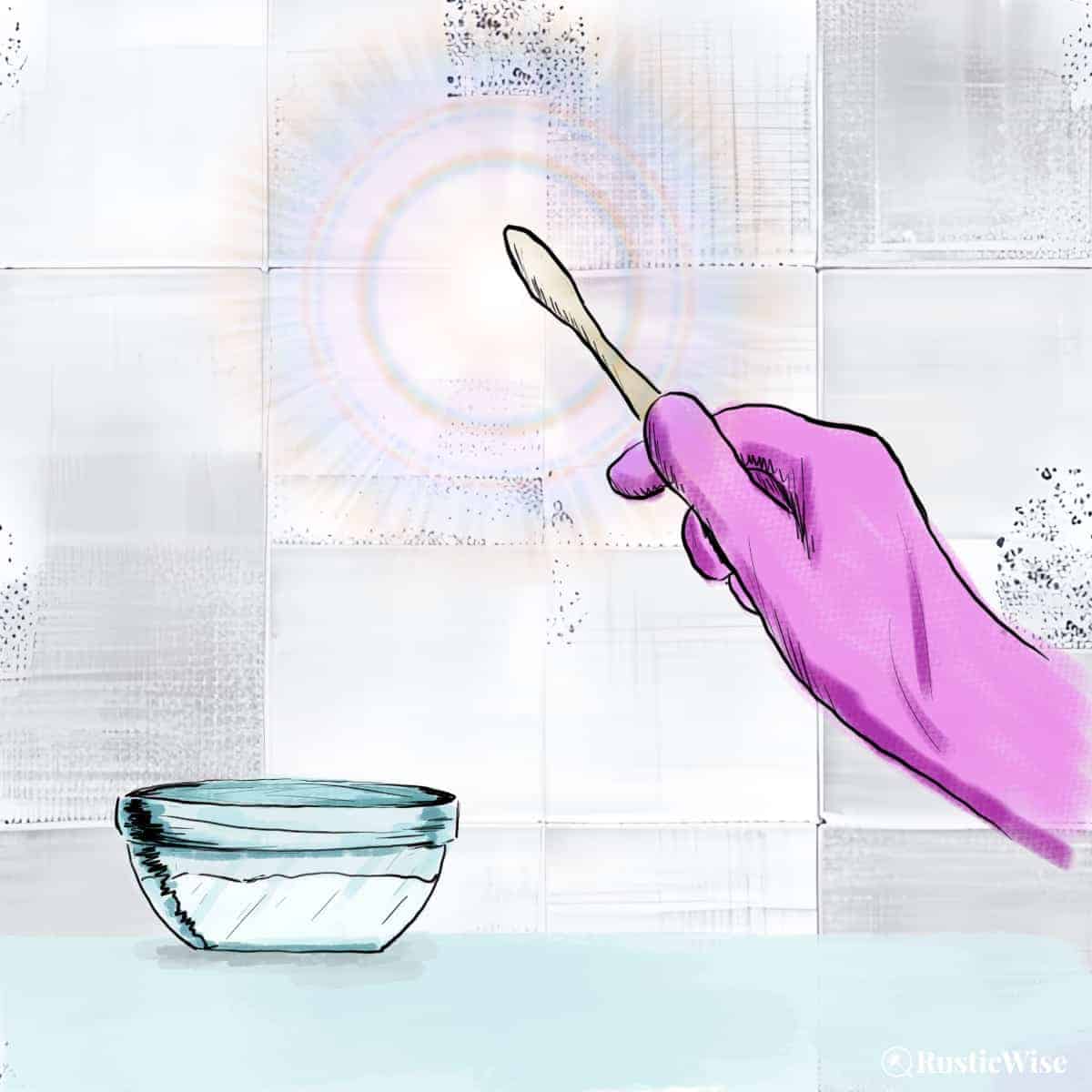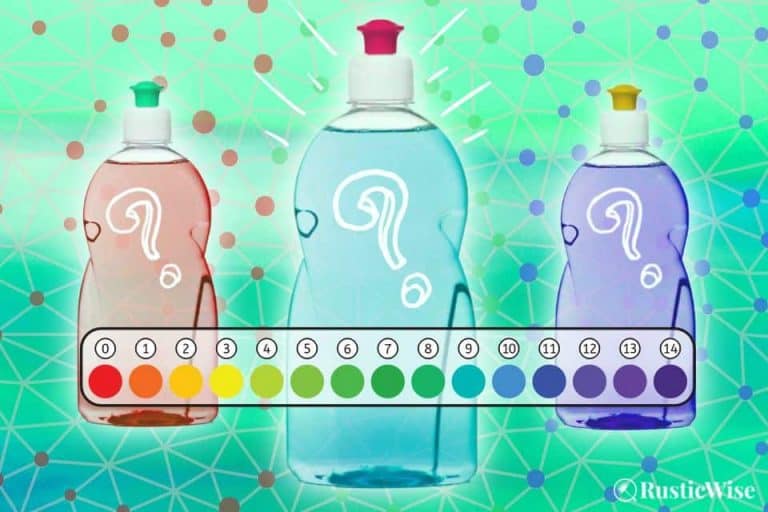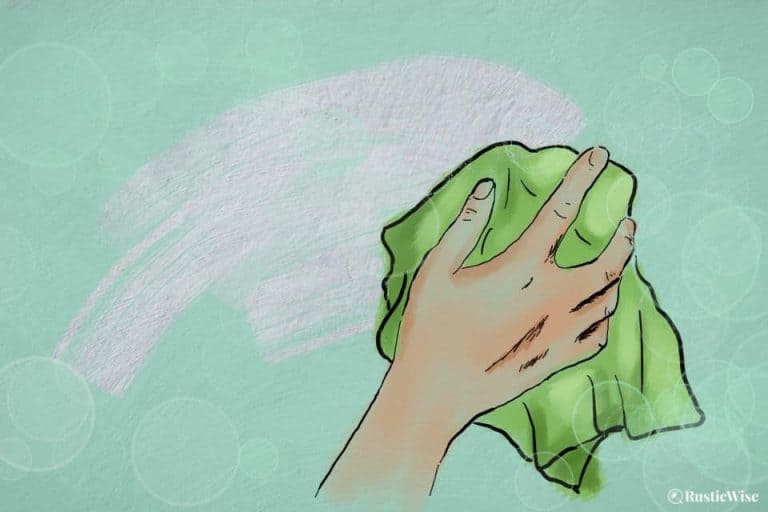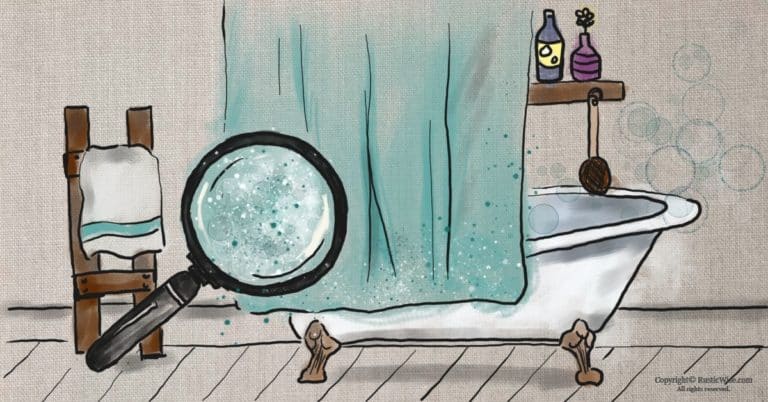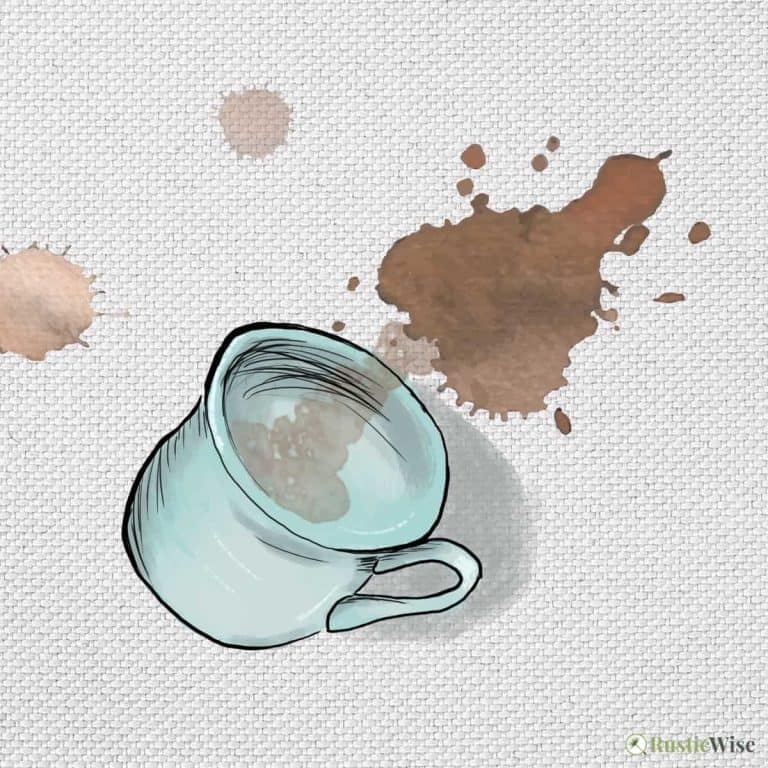Best Way To Clean a Tile Shower Without Harsh Chemicals
One of the most important areas of your home to clean is your shower. The moisture and humidity of a bathroom make it a breeding ground for bacteria and mildew. When you neglect to clean the tiles and grout in your shower, a layer of soap scum or hard water buildup quickly becomes unsightly.
So how exactly do you keep your tile shower squeaky clean without having to resort to harsh chemicals? Thankfully, there are some gentler options available using regular household products.
The best way to clean a tile shower and banish buildup, mildew, and scrum is to combine baking soda, hydrogen peroxide, and a bit of Castile soap (or dish soap). Baking soda provides mild scrubbing power, and when combined with hydrogen peroxide, brightens surfaces and disinfects. A bit of Castile soap helps to wash away any remaining residue.
Let’s look at how to use these simple ingredients for mild scrubbing, or more deep cleaning. Plus, we also have a DIY shower spray recipe that will keep your showers cleaner for longer.
What are shower tiles made of?
Most shower tiles are made of either ceramic, glass, or porcelain. These materials are moisture resistant with typically smooth surfaces in a variety of colors and designs.
This article focuses on cleaning shower tiles made of ceramic, glass, or porcelain.
If you have a marble or natural stone tiles, please follow the care instructions from your manufacturer. These types of materials may require extra TLC.
Cleaning tips and safety precautions for shower tiles
Cleaning grout is one of the most tricky and time-consuming steps of getting a spotless shower. As grout is a porous material, any harsh cleaners can seep in and damage it.
While many shower tiles are fairly resilient, you’ll want to ensure anything you use to wash it won’t scratch or dull the surface.
- Avoid harsh or abrasive cleaners: Many commercial scouring powders or liquids can etch the finish of tiles and potentially damage grout lines. Same goes for using scratchy cleaning tools. Avoid coarse steel wool pads or steel brushes which can leave your bathroom tiles looking dull. Stick with non-abrasive sponges or cloths to scrub the tiles.
- Don’t use vinegar on grout: While white vinegar is an absolute workhorse in the world of green cleaning, it doesn’t play nice with grout. I do not recommend vinegar for unsealed grout, or older grout. The acidic content may eat away at the material over time. While vinegar is safe to use on ceramic, glass, or porcelain tiles, it’s hard not to get any on your grout. So we’ll play it safe and avoid using it anywhere near the grout.
- Avoid chlorine bleach if possible: Bleach is one of the go-to cleaning products many turn to for disinfecting and whitening. But it’s a strong cleaner that may also wreak havoc on your shower surfaces. Instead, we’ll use hydrogen peroxide, which is a much gentler disinfectant.
- Do a spot test: I highly recommend doing a quick spot test in an inconspicuous area of your shower before using any kind of DIY remedy.
- Rinse well and wipe clean: For a sparkling clean, rinse with clear warm water and dry with a soft towel.
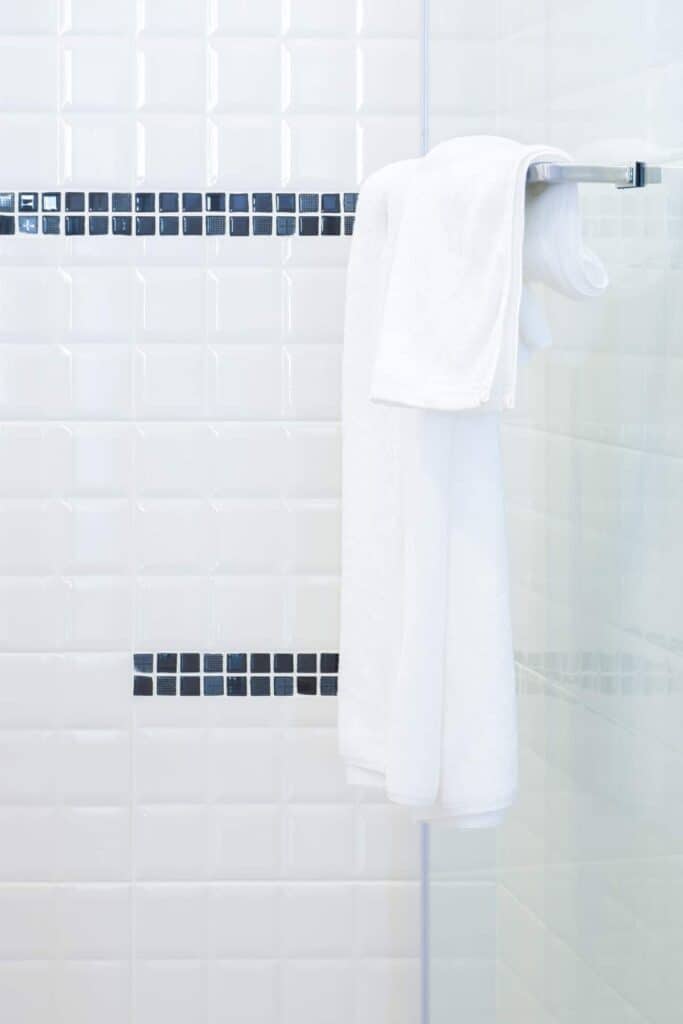
Basic ingredients to clean your shower tile
Believe it or not, the following ingredients are gentle on you and the environment, but still pack a powerful cleaning punch! The trick is using them properly.
Here’s what each ingredient brings to the table:
- Baking soda: A natural and non-toxic cleaning powder with gentle scrubbing power. It’s sometimes referred to as a “scratchless” abrasive as it’s safe on most surfaces. Baking soda (aka sodium bicarbonate) also deodorizes and lifts dirt and stains. It also helps scrub away hard water minerals and soap scum.
- Hydrogen peroxide: You likely have a bottle of this stuff in your medicine cabinet for disinfecting wounds. But it also doubles as a great stain lifter and whitener. When combined with baking soda, these two make an unbeatable combo.
- Castile soap: A plant-based liquid soap, Castile helps lubricate baking soda and hydrogen peroxide for more effective cleaning. It also works its magic to wash away greasy or oily residues common from shampoo or shower products.
Is it safe to mix hydrogen peroxide and baking soda?
Yes, absolutely! Hydrogen peroxide and baking soda are safe to use in combination and provide an extra cleaning boost when used together.
Best way to clean a tile shower using just 3 ingredients
You can say goodbye to mold and mildew. Soap scum, mineral buildup, and tough stains are no match for this DIY shower tile cleaner.
Hydrogen peroxide has antimicrobial and oxidizing properties which can help to disinfect surfaces.¹
Use this cleaner to deep clean your shower or tub as needed.
The following recipe is from Washington State University.²
Supplies and ingredients you’ll need:
- ½ cup baking soda
- ¼ cup hydrogen peroxide
- 1 teaspoon concentrated liquid Castile soap (or dish soap)
- Small bowl and spoon for mixing
- Sponge or cleaning cloth for tiles
- Old toothbrush or nylon grout brush
- Microfiber cloth or clean towel
Tip: The best time to clean a shower is right after someone has used it. The moisture and humidity make the ideal conditions to loosen and remove built up scum and minerals.
- Prepare cleaning solution: Add baking soda to a small bowl, followed by hydrogen peroxide. Stir to mix. Next, add Castile soap. Mix again.
- Apply to tile and grout: Use a dampened sponge or cloth to apply the paste to bathroom tiles and grout.
- Let it sit: Let the mixture sit for 5 to 10 minutes.
- Scrub: Use a sponge to scrub the tiles gently. An old toothbrush works well to clean grout lines and other hard-to-reach areas. Repeat steps 2 to 4 as needed.
- Rinse and dry: Rinse with warm water and wipe dry with a microfiber cloth or lint-free towel.
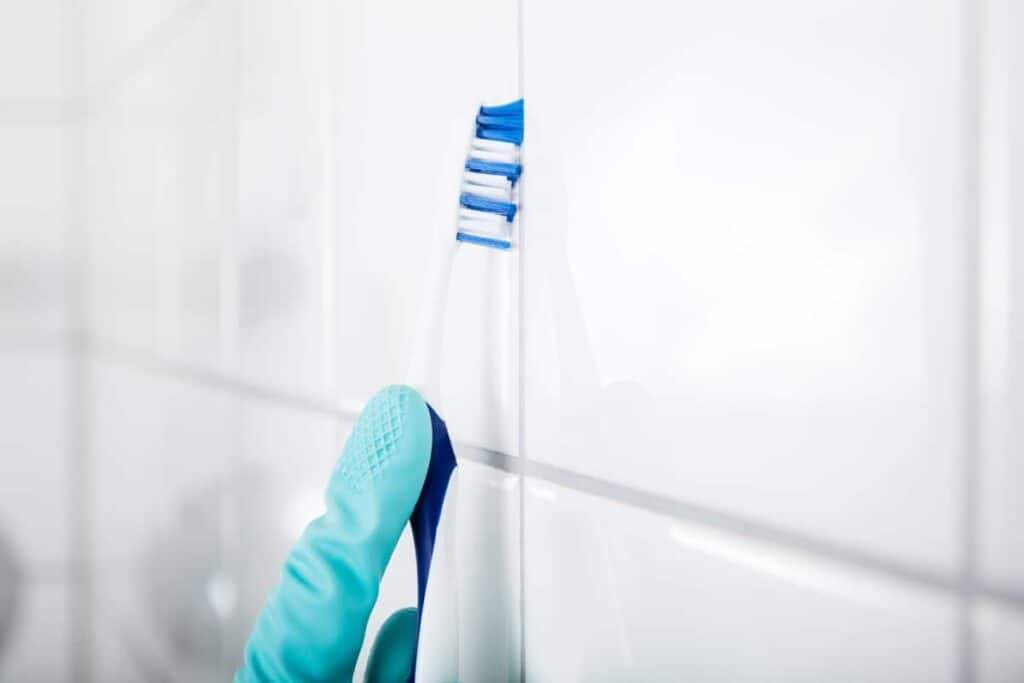
Make a baking soda paste for a quick clean
If you don’t require a deep clean, you can skip the hydrogen peroxide and instead combine water with baking soda to make a thick paste.
Combine 3 parts baking soda to 1 part water in a small bowl.
This is a great gentle scrub to spruce up grout and tile in between deeper cleans. Remember to rinse the tiles with warm water afterwards and wipe dry.
DIY daily shower spray
If you want to clean less often (and who could blame you?), check out this easy DIY shower spray you can use on the regular to keep your shower spotless.
West Virginia University recommends making an easy shower spray with just two ingredients: water and rubbing alcohol.³ Rubbing alcohol keeps bacteria at bay.
Ingredients you’ll need:
- ⅓ cup rubbing alcohol
- 1 cup water
- Optional: a few drops of essential oil such as tea tree, lemon, orange, or lavender for added cleaning power
- Spray bottle
Combine ingredients together in a spray bottle. Swirl to mix.
To use, simply spray onto shower tiles. No need to rinse! The rubbing alcohol will eventually evaporate.
How to keep your shower clean for longer
A spotless bathroom shower is within your reach—here are a few shower maintenance tips.
- Use your DIY shower spray after each shower.
- Keep a squeegee in the shower. A few simple strokes against tiles helps to wick away excess moisture and prevent mineral buildup (especially if you have hard water).
- Keep your shower grout sealed to prevent unsightly discoloring. A properly sealed grout is moisture resistant, which will prevent the development of harmful mold or mildew.
Related questions
What are the major causes of dirty shower tiles?
The main causes of dirty shower tiles are a buildup of soap scum, mildew, mold, and hard water deposits from calcium and magnesium.
What’s the best way to clean shower tiles?
Adding a little baking soda with some hydrogen peroxide and soap will let you scrub those tiles and make them look like new again.
How often should you regrout shower tiles?
Most shower professionals recommend regrouting shower tiles at least once a year, especially in bathrooms that you regularly use. In guest bathrooms, you can regrout every 12-18 months to keep them looking great and prevent water from leaking into the walls.
👉 If you like this post, see other Timeless Cleaning Tips You Need To Know. 🌟
Would you like more timeless tips via email?
Fun tips to help you live an independent, self-sustaining lifestyle. Opt-out at any time.


References
- Chemical Safety Facts, Hydrogen Peroxide, https://www.chemicalsafetyfacts.org/chemicals/hydrogen-peroxide/. Accessed March 2023.
- Washington State University, Green Cleaning, https://s3.wp.wsu.edu/uploads/sites/2053/2014/10/GreenCleaning-_April-29_2015.pdf. Accessed March 2023.
- West Virginia University, Homemade Cleaning Products, https://extension.usu.edu/waterquality/files-ou/water-quality-tools/homemadecleaningproducts.pdf. Accessed March 2023.

Author: Theresa Tesolin
Theresa is co-founder of RusticWise. She helps people unleash their inner DIY spirit by encouraging them to get dirty and make or grow something from scratch.

